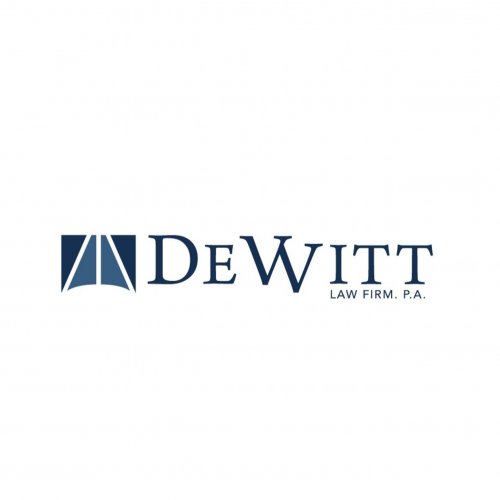Best Mortgage Lawyers in Orlando
Share your needs with us, get contacted by law firms.
Free. Takes 2 min.
Free Guide to Hiring a Real Estate Lawyer
List of the best lawyers in Orlando, United States
About Mortgage Law in Orlando, United States:
Mortgage law in Orlando, United States governs the legal aspects of borrowing money to finance the purchase of a property. A mortgage is a loan secured by the property, which serves as collateral. In the event of default on loan payments, the lender has the right to foreclose on the property.
Why You May Need a Lawyer:
Seeking legal advice from a lawyer specializing in mortgage law may be necessary in various situations. Some common instances where legal help is required include:
- Understanding complex mortgage agreements and terms
- Negotiating mortgage terms with lenders
- Resolving disputes related to mortgage payments or defaults
- Facing foreclosure or the threat of foreclosure
- Dealing with predatory lending practices
Local Laws Overview:
When it comes to mortgage law in Orlando, United States, there are a few key aspects to be aware of:
- Florida is a lien theory state, which means that the borrower retains legal title to the property while the lender holds a lien on it.
- Closings in Orlando generally require the assistance of a licensed attorney to ensure all legal requirements are met.
- Florida has a "homestead exemption" law that offers certain protections to homeowners, including protection against forced sale to satisfy debts.
- Foreclosure proceedings in Florida are primarily judicial, meaning they go through the court system.
Frequently Asked Questions:
1. Can I negotiate the terms of my mortgage agreement?
Yes, it is possible to negotiate certain terms of a mortgage agreement with the lender. However, the extent of negotiation may vary depending on the lender and the prevailing market conditions.
2. What should I do if I am unable to make my mortgage payments?
If you find yourself unable to make mortgage payments, it is crucial to contact your lender immediately to discuss your situation. They may offer options such as loan modification, forbearance, or repayment plans.
3. What is the foreclosure process in Orlando?
In Orlando, foreclosure is primarily a judicial process. It involves the lender filing a lawsuit against the borrower, and if successful, the court orders the sale of the property to repay the outstanding mortgage debt.
4. How can I protect myself from predatory lending practices?
To protect yourself from predatory lending practices, it is essential to carefully review all loan documents, understand the terms, and consult with a mortgage attorney to ensure you are not being taken advantage of.
5. What are my rights as a homeowner in Orlando?
As a homeowner in Orlando, you have rights protected under Florida's homestead exemption laws. These laws provide certain protections against forced sale to satisfy debts, helping safeguard your primary residence.
Additional Resources:
For further information and assistance, you may consider reaching out to the following resources:
- Florida Bar Association - Real Property, Probate, and Trust Law Section
- Consumer Financial Protection Bureau (CFPB)
- Florida Housing Finance Corporation
Next Steps:
If you require legal assistance regarding mortgage matters in Orlando, it is recommended to consult with an experienced mortgage attorney. They can review your specific situation, guide you through the legal processes, and help protect your rights and interests.
Lawzana helps you find the best lawyers and law firms in Orlando through a curated and pre-screened list of qualified legal professionals. Our platform offers rankings and detailed profiles of attorneys and law firms, allowing you to compare based on practice areas, including Mortgage, experience, and client feedback.
Each profile includes a description of the firm's areas of practice, client reviews, team members and partners, year of establishment, spoken languages, office locations, contact information, social media presence, and any published articles or resources. Most firms on our platform speak English and are experienced in both local and international legal matters.
Get a quote from top-rated law firms in Orlando, United States — quickly, securely, and without unnecessary hassle.
Disclaimer:
The information provided on this page is for general informational purposes only and does not constitute legal advice. While we strive to ensure the accuracy and relevance of the content, legal information may change over time, and interpretations of the law can vary. You should always consult with a qualified legal professional for advice specific to your situation.
We disclaim all liability for actions taken or not taken based on the content of this page. If you believe any information is incorrect or outdated, please contact us, and we will review and update it where appropriate.








